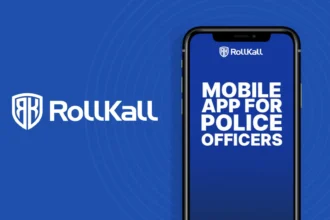How may I obtain a credit card without credit?
Especially when you’re starting from nothing, developing credit can seem like an uphill fight. Still, don’t panic; it’s quite likely to acquire your first credit card even with a spotless record. This book will coach you through the process and offer insightful advice to support your path of credit building.
Appreciating Credit and Credit Cards
One must understand the credit fundamentals before delving into the credit card application procedure. Credit is a financial reputation lenders use to evaluate your capacity for returning borrowed money. A credit card is a revolving line of credit that lets you borrow up to a designated amount. Using credit responsibly will help you build a good credit history, vital for your next financial projects like house or car purchases.
The Dilemma Without Credit History
Applying for credit cards might prove difficult for people without a credit history. Usually, lenders want candidates with a track record of conscientious credit management. That does not mean, however, that approval is unattainable. There are particular techniques and credit card choices catered to individuals just beginning their credit adventure.
Your First Step: Secured Credit Cards
An outstanding place to start building credit is a secured credit card. Secured cards, unlike conventional credit cards, call for a security deposit that sets your credit limit. Using the card sensibly and paying on time can help you to progressively create a good credit record. You can be qualified to progress into an unsecured credit card over time.
Secured credit cards use your cash deposit to operate. Usually, the size of your deposit controls your credit limit. For example, your credit limit might be $500 if you deposit $500. For people without a credit history, secured credit cards provide accessibility; credit growth potential; and fraud protection among other advantages. Still, compared to unsecured cards, secured credit cards sometimes include yearly fees and higher interest rates.
Authorized User: A Fast Credit Boost
One quick fix for credit building is becoming an authorized user on a credit card belonging to a friend or relative. Usually reported to credit bureaus, the credit history of the main cardholder will credit you for careful account management. To maximize the benefits, though, the main cardholder must have a clean credit record.
The authorized user process starts with the main cardholder adding you to their account. Your credit report shows the history of the account; your name shows on the credit card. Especially if the main cardholder has a solid credit history, becoming an authorized user can help rapidly develop credit. But depending just on approved user status might not give a whole credit profile. Establishing credit independence requires you to have your own credit accounts.
Beginners’ Designed Student Credit Cards
If you are a student, several credit card issuers provide student credit cards with perhaps higher interest rates and smaller borrowing limits. These cards give financial freedom while helping kids build credit. To keep your credit score intact, though, you must utilize student credit cards sensibly.
Features including rewards programs, balance transfer incentives, and purchase protection advantages abound on student credit cards. These cards give spending limitations, credit history-building tools, and financial education tools among other things. However if improperly controlled, low credit limits and excessive interest rates might result in debt.
Establishing Credit Outside Credit Cards
Although credit cards are a great tool for credit growth, other financial behaviors can raise your credit score. A healthy credit profile can result from timely bill payment, a good loan payment history, and avoidance of too much debt.
Lenders check payment history very carefully. Regular timely payments show financial discipline. Keeping up a strong credit score also depends on keeping up a good payment history on loans—such as auto loans or college loans. Your credit score may suffer from high credit use—that is, the percentage of credit you utilize relative to your credit limit.
Strategies for Achievement
Beginning with a low credit limit can help you start small and control your expenditure, therefore preventing overspending. Developing a good credit history depends on consistent, on-time payments. To watch your development and find mistakes in your credit report, routinely examine it. Your credit score may improve if you limit credit applications over a brief period. To enhance your credit mix, think about spreading your credit by looking at alternative types including installment loans.
Beyond these fundamental actions, you must know and control your credit use ratio. Your overall credit limit to your total credit card balances ratio is compared here. To show good credit control, try to maintain this ratio of less than 30%. As your financial condition gets better, think about also asking for credit limit raises. Reducing your credit use ratio will help your credit score to improve.
Finally, take careful protection of your financial records. Steer clear of giving private information to unwelcome calls or emails. Check your credit reports often for indications of identity theft; if you see any unusual behavior right away, act.
Including this extra advice in your credit-building plan will improve your financial situation and help you attain long-term credit achievement.
Conclusion
Though it can seem difficult, building credit from nothing is doable with the correct strategy and discipline. Establishing a strong credit basis that can help you for years to come requires knowledge of the choices at hand and adherence to sensible financial habits. Recall that credit building takes time; so, be patient and tenacious in your activities.
FAQs
1. Credit building takes what length of time?
Establishing credit requires time. Generally speaking, your credit score will show a clear improvement after several months of sensible credit utilization.
2. Can I apply for a credit card with terrible credit?
Getting a typical credit card with weak credit is difficult. For those with bad credit, secured credit cards and credit-builder loans are alternatives, though.
3. Describe a good credit score.
Usually, a healthy credit score is between 670 to 739. Your chances of qualifying for reasonable loan terms increase with your score.
4. When should I review my credit report?
Check your credit report at least once a year to look for mistakes and spot possible fraud.
5. Can I easily raise my credit score?
Although there are no shortcuts to raising your credit score, over time regular prudent financial behavior will progressively increase your creditworthiness.
6. What is the difference between a credit score and a credit report?
A credit score is not the same as a credit report. Including credit accounts, public documents, and payment history, a credit report is a comprehensive record of your credit past. Generated by credit bureaus using the data in your credit report, a credit score is a numerical depiction of your creditworthiness.
7. Should I be a victim of credit card fraud, what should I do?
Act right away if you believe credit card fraud is occurring. To report the fraud and get a replacement card, call your credit card company. Besides, put a fraud alert on your credit record and keep a tight eye on your accounts for any illegal charges.





